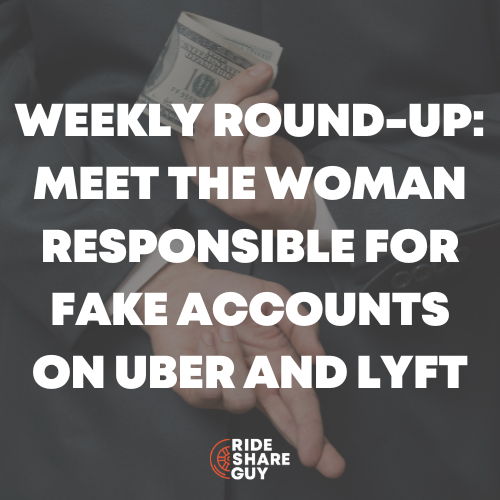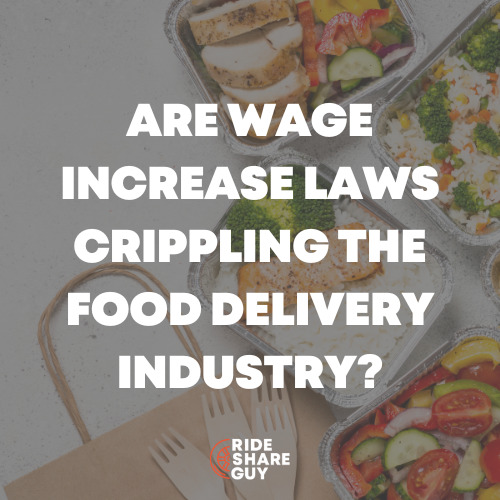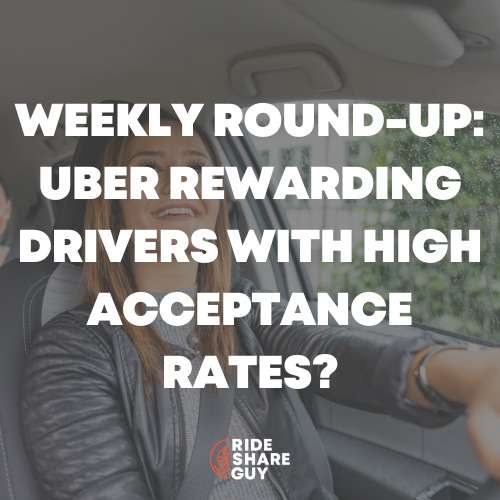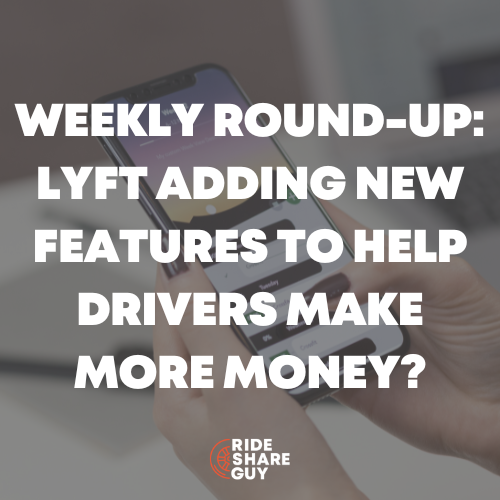In the past week, we saw two start-ups close their doors (Zirtual and Zen99) and when you throw in Homejoy, some might call that an alarming trend. I think companies in this space have been given a lot of slack by investors who are overlooking traditional metrics in search of that next Uber.
If more go down, it could be a wake-up call to investors that maybe they shouldn’t be quite so cavalier with their money. Uber is obviously a unique case and even they’re having trouble with profitability, despite having very little in the way of capital expenses and employee costs (typically two of the biggest costs of any start-up).
Today, RSG contributor, John Ince, takes a look at Uber’s secret weapon, dives deeper into the Zirtual meltdown and touches on tipping in Uber cars. We’d love to hear what you have to say about the week’s top stories so please leave a comment below.
Btw, last week I went on NPR to talk about the Uber lawsuit and you can find the live segment here. David Plouffe got a little bit more air time than I did but still a good experience 🙂

Uber’s Secret Weapon: What Future Founders Can Learn From Ryan Graves
Sum and Substance: If you’ve been following Uber over the past four or five years, this is the part of the story you’re probably familiar with: Ryan really wanted to get out of GE and work at a startup. … While on Twitter one day, Ryan noticed a tweet from Travis Kalanick: “Looking for PM killer. Any tips?” Ryan was hustling and following Travis because he knew Travis was tapped into Silicon Valley and investing in companies. So Ryan followed up with: “Here’s a tip: email me,” and gave Travis his email.
That was how he met Travis and Garrett. He flew out to New York to meet Travis and Garrett, and was finally able to capitalize on putting himself in the right position; he had a story to tell and Travis bought it. Ryan joined Travis and Garrett in getting ready to launch what was then called UberCab, eventually moving to San Francisco and growing Uber. It was all because of hustle, putting himself in the right position, and meeting as many people as possible….
My Take: This is a feel good story that encapsulates the can do spirit of Uber – a guy who made his own breaks just by getting out there … knocking on doors and doing everything possible to make things break his way. The story gives some good insights into how Uber came to knock down doors that nobody thought could be knocked down.
Not Just An App: The Front End Of The Trillion-Dollar, Full-Stack Revolution
Sum and Substance: Stop calling Uber, Airbnb and Munchery just apps. These apps are the front end of a full-stack revolution powered by cloud, mobile, drones, robots and AI. These apps started as simple solutions to match demand and supply, but they have the potential to reinvent entire industries. Today’s apps can best be compared to websites of the last tech revolution (or bubble) in late ’90s. The best of them, like Amazon, started as simple websites, but today invent drones, build robots and invest billions of dollars in all kinds of innovation and research to transform retail, logistics and even computing. Uber is beginning to show signs of that transformation with its move into driverless cars and maps — the other Uber-like winners will follow. Those that minimize what these apps do don’t understand that a full-stack revolution is afoot.
My Take: This is my kind of article … expansive and comprehensive. It’s message is upbeat: What Uber and others in this space have accomplished is truly amazing. There’s digital gold in those bit’s ‘n bytes … We’ve graduated from the primitive state of the Web with static Websites … to apps that know exactly where you are and what you looking for. The possibilities here are seemingly endless … but anybody whose been through enough business cycles and remembers the last bubble burst has to be just a bit skeptical when articles like this one start appearing with regularity. The echoes of lost lessons from the last go round are starting to become just a little bit eerie. … which is a nice lead in to our next story this week.
A startup dissolved overnight and laid off its 400 employees via email with no warning
Sum and Substance: In the middle of the night, a startup that had raised $5.5 million dissolved and disappeared. It deleted its Twitter accounts, Facebook pages, and Google+ profile. It changed its website to say it was “pausing operations.” At 1:34 a.m. PT on Monday, Zirtual, a virtual-assistant company, sent an email to all of its employees saying it had ceased operations, effective immediately. A follow-up note to its clients said it was “pausing operations” to reorganize its structure. The news stung because there was no warning from the company, according to several former employees who spoke with Business Insider.
My Take: The irony here is that Virtual’s CEO, Kate Donovan, had just penned a story Fortune in which she wrote, “Additionally, give your employees ample time to adjust, as change in a company can often lead to people feeling unstable in their positions. And be transparent.”
This is how companies in this era go broke. Behind the scene’s it’s happening incrementally, but to those outside the loop it seems to happen suddenly. From hindsight one can point to all kinds of warning signals, but in the moment people are too busy … too caffeinated … to pay attention to anything outside their “to do” list.
Stanley Roberts Visits Outside Lands Just To Shame Uber Drivers Stopping In Bus Zones
Sum and Substance: Yay! It wouldn’t be a big festival/event day in San Francisco without KRON 4’s Stanley Roberts finding some attendees “behaving badly.” But rather than go after wristband scalpers or drug dealers this year, Stanley singled out drivers, especially Lyft and Uber drivers, who pulled over into bus zones at 30th and Fulton to drop off passengers, some of whom got slapped with $280 tickets.
Yes, it seems a number of drivers did not happen to notice all the SFMTA and police officers in special day-glo vests manning the scene at both the 25th Ave. and 30th Ave. entrances to the park, and heavily policing the bus stops there because of the high volume of passengers needing to come through those stops. Drivers also got cited for pulling over in crosswalks. Stanley takes extra pleasure in this one asking the Uber/Lyft drivers how much their most recent fare was before telling them about the $280 ticket they’re getting.
My Take: I avoided Outside Lands for this very reason. Two weeks ago I had a dropoff in San Francisco and there was no place to pull over so I cruised into a bus zone unaware that there was a bus right behind me. The bus swerved around me and I started shitting bricks because I had read that all busses in San Francisco now have front mounted cameras, which will take a picture of your license plate and then you receive a ticket in the mail, just like happened to me with a red light camera ticket that set me back $490 bucks. So far no ticket has arrived for the bus zone incident, but driver’s beware, SF authorities have no patience for even minor violations.
Uber’s Desperate Fight to Avoid a Massive Class Action Suit
Sum and Substance: Silicon Valley behemoth Uber is no stranger to court battles. Still, this week saw the tech giant face one of its biggest courtroom confrontations yet: Trying to convince a judge to block a lawsuit from proceeding to class-action status. On Thursday, the company with a whopping $51 billion valuation, went before US District Judge Edward Chen for a hearing in which the judge pondered whether he would grant class-action status to the suit, which seeks mileage and tip reimbursement for 160,000 Uber drivers in California.
My Take: Since Harry has already written an excellent and lengthy piece on this I’m relegating this story to the bottom of the pile in this week’s roundup. That’s no reflection on this issue’s importance. This ultimately could be an existential issue for Uber. Although the final court determination is likely years away, Uber is amassing a massive backlog of potential liabilities if the courts rule against them. Imagine if Uber has to pony up close to 50% of what it’s already payed 160,000 drivers in California in weekly earnings … which is roughly what the California Labor Commission said Uber owed the woman who prevailed in her successful suit in June of this year.
Uber Valued at More Than $50 Billion
Sum and Substance: Uber Technologies Inc. has completed a new round of funding that values the five-year-old ride-hailing company at close to $51 billion, according to people familiar with the matter, equaling Facebook Inc. FB 2.70 % ’s record for a private, venture-backed startup. Uber raised close to $1 billion in the round, one of the people said, bringing the San Francisco company’s total funding to more than $5 billion. Uber had briefed investors on a plan to raise between $1.5 billion and $2 billion in the round, The Wall Street Journal reported in May. Investors in the latest round include Microsoft Corp. MSFT 0.56 % and the investment arm of Indian media conglomerate Bennett Coleman & Co., another person familiar with the matter said, as Uber seeks to bolster its technology and expand outside the U.S.
My Take: It’s interesting to me how even the Wall Street Journal, with all their high powered analysts seem so pre-occupied with how quickly Uber achieved a $50 billion valuation – and so cavalier about how much money they lost getting to that point. I don’t have the figures, but I’m thinking that Facebook, Google, Microsoft and others that grew to be so big so fast, lost a lot less than Uber has in the comparable stage of growth.
Uber drivers can now accept tips electronically, without Uber’s help
Sum and Substance: One of Uber drivers’ biggest beefs with the ride-hailing company is that they can’t get tips from customers through its app. Vugo, an in-car advertising company, may have a fix. Vugo launched a new feature on Friday that lets Uber passengers leave drivers a tip with the tap of a button. More than 3,000 Uber drivers use Vugo by displaying its app on a tablet mounted in the backseat of their car. And now — besides ads, news and weather — passengers will also see a “tip your driver” button on the lower left corner of the Vugo app. “Creating a way for Uber drivers to accept tips electronically seemed like a natural expansion,” Vugo co-founder James Bellefeuille told CNET News.
My Take: I differ with Harry on this one. Harry has already written a positive review of Vugo, but I recoil as the thought holding my passengers captive before a screen with moving ads (and now a tip option) in front of their eyes. Haven’t we already got enough screens … enough ads … enough distractions? What motivates me as a driver, is the opportunity to engage with passengers in good conversations … without distractions. I just don’t see passengers taking the time to log into their paypal account (or create a new one) to shell out money to a driver. Much simpler to reach into their wallet for cash if they really want to tip their driver. (which most passengers don’t want to do.)
What do you guys think about the week’s top stories?
-John @ RSG




